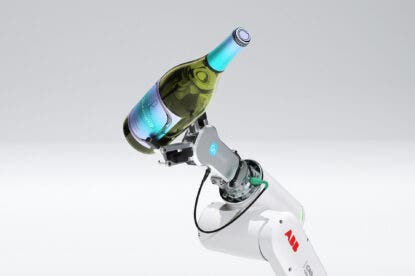Wine has long been considered a luxury product. And Champagne is a type of wine, produced from fermented grapes cultivated using the same process as for still wines. But it undergoes the additional process to become sparkling, the méthode Champenoise production technique, that requires extra time, cost and care.
From early years until now, Champagne has been automatically grouped into the luxury market. As the founder and owner of B. Stuyvesant Champagne, this is a segment I’ve come to know and understand.
So, who defines what luxury is?
It goes beyond a price tag. There is a special feeling when one begins to open a Champagne bottle. It starts with removing the coiffe to expose the cork and wire cage, twisting the wire cage but not removing it, holding the bottle at a 45-degree angle, turning the bottle while holding the cork steady and waiting for the pop sound. For me, that is a regal feeling.
More people are seeking that feeling, and the increased consumption of Champagne has created growth within the wine industry. Consumers want to know more about Champagne, and they are willing to pay to drink it and to learn about it.
Beyond the financial part, though, in my opinion, luxury is not what it used to be. This is not a bad thing, just a new perspective. In the past, the luxury market could be defined simply as what was only accessible to the very rich. Exclusivity was the most crucial attribute.
Now, consumers are evolving, and quality is a key definer of what constitutes luxury, followed by education. Looking at wine as a whole, we can all agree the industry is large, diverse in types of wine, growing and ever-changing. A bottle of wine can easily be purchased for $10 and can go high into the thousands for a single bottle. Some may still say the price-point is a lead factor if a wine falls into the luxury wine category, but I disagree.
In the past, the luxury market could be defined simply as what was only accessible to the very rich. Exclusivity was the most crucial attribute.
Exclusivity still persists in other ways. It is sometimes assumed Black people know very little about wine. As an African American woman, I’ve been to establishments and asked for Champagne and been given Prosecco. I have no issue with Prosecco, but if I ask for Champagne, that is what I want. When I would politely point out the difference, I have been shunned.
The wine industry has ignored African Americans’ buying power, which equates to well over a trillion dollars. The industry has also ignored the intelligence African Americans have of wine.
African Americans own vineyards, wine establishments, brands and are immaculately educated about wine. I am offended that I am judged on my appearance, but this also gives me an opportunity to show I am fully knowledgeable of my craft, itself a luxury.
While I personally used to only drink Moët with my friends, that was because it was what I knew. I would hear Moët in songs or videos, and so we would naturally gravitate to what we saw and heard. The inner me wanted to explore different bubbles, learn why one bottle is $12 and another $52, do they all taste the same, how is it made, is there anybody in the field that looks like me?
With consumers growing intellectually due to higher education levels, more cultural awareness, personal growth, social media platforms, etc., luxury has changed to keep up.
Champagne is not just for the rich but for those who have a desire to understand what makes a good wine. Champagne is also not just for special occasions; it can be for any day of the week or just because.
My customers are diverse. Some are relatively Champagne savvy, some are not, but the common goal they have is debunking the myth that Champagne should be reserved only for special occasions or the elite.
The wine market has grown and continues to grow on a daily basis, and Champagne plays a part, as consumers have gravitated to enjoying Champagne on any given day. Consumers are also aware that there are different types of Champagne. They figure, why only stick to one type, the thought is “let me expand my palate.”
The novel coronavirus pandemic has forced me to be more creative in reaching Champagne lovers and increasing their knowledge. It’s also created a new niche in the overall wine industry, as virtual events have tremendously increased. Taking the time to deepen our knowledge is part of the new luxury. My personal motto is “We sip it, let’s learn about it,” and I do just that.
Published: November 18, 2020















